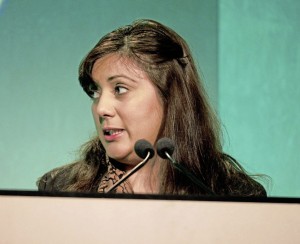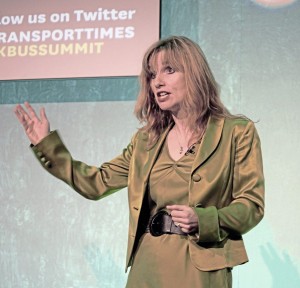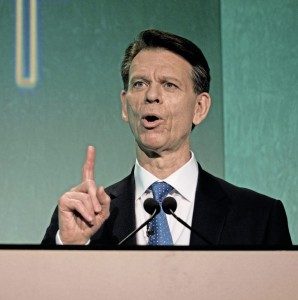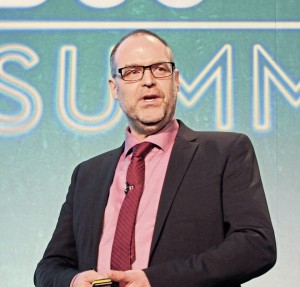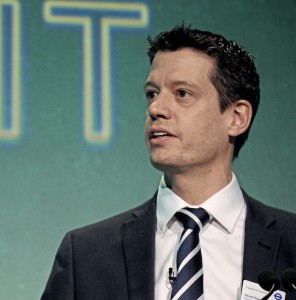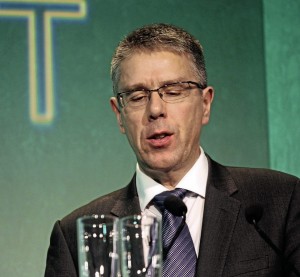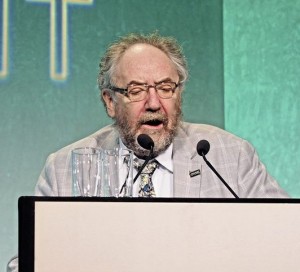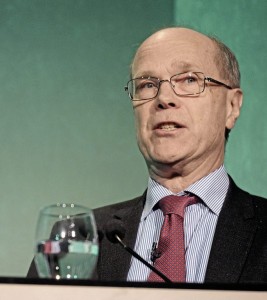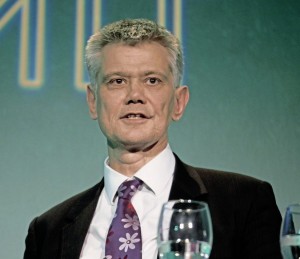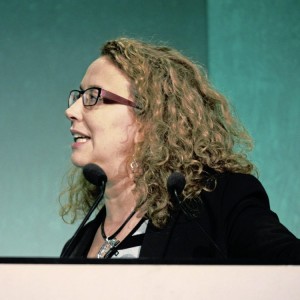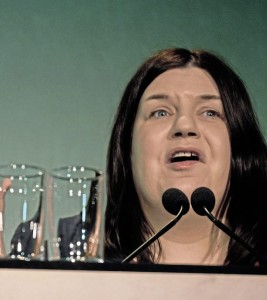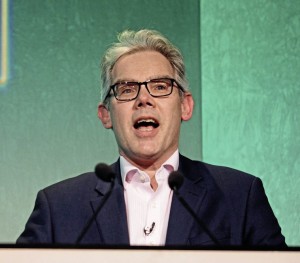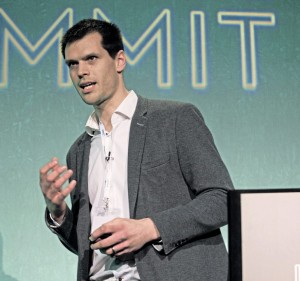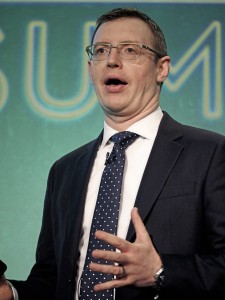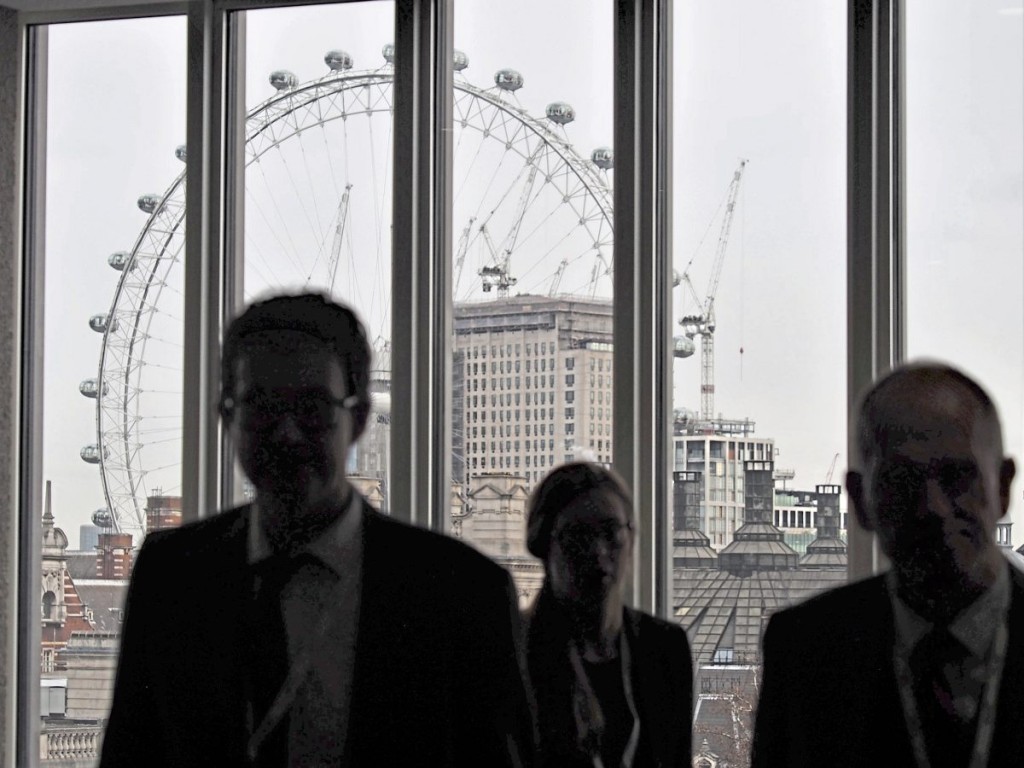A bus renaissance?
At the annual UK Bus Summit, everyone from the Minister to council leaders promised a bus revolution as they struggle to tackle congestion. But they were told they are making fundamental errors. Mark Williams was there
The UK’s new Clean Air Zones could be the biggest boost to buses for decades… or another example of politics which ignores the evidence.
Delegates at the UK Bus Summit heard the arguments from both sides but everyone including new Transport Minister for buses, Nusrat Ghani MP, was in broad agreement that buses are the solution to urban transport problems.
Held at the QEII Centre in Westminster, the conference brought together operators, manufacturers, local government and government agencies to examine the current opportunities for bus business, and uncover the inadequacies of current government thinking on low-emission zones.
The focus on reducing bus and coach emissions was underlined by the nature of exhibitors at the conference, with electric bus builder Optare the headline sponsor, Gas Bus Alliance, Low Carbon Vehicle Partnership, electrics company Siemens, urban forecasting firm Prospective, Transport for London, Greener Journeys, Cummins, engineering experts Groeneveld, and on-board technology companies 21st Century and Faltcom.
In his opening address, chair Professor David Begg underlined the change in clean diesel engines on buses, and said that they shouldn’t be swept up in the government’s ‘dirty diesels’ rhetoric.
“It’s about setting an agenda,” he said. “Research which produces evidence which produces the right policies – it should be evidence based. We know this doesn’t always happen.
“The Number One cause of higher emissions is traffic congestion. Every decade, buses have lost 10% of their patronage because of congestion. With a 50% reduction in bus speeds comes a 50% rise in NOx emissions.
“But the Number One source of NOx is the diesel car, followed by vans second, cars third, and buses fourth. Politically, though, governments don’t go for diesel cars but for buses. We all want electric buses but how do we get there? Actually, Euro VI engines are very clean; we hadn’t realised how clean, but they’re a whole lot cleaner than Euro 6 cars, and bus emission standards are not tested in laboratories but on the road.
“Some cars produce five or six times more emissions than claimed.”
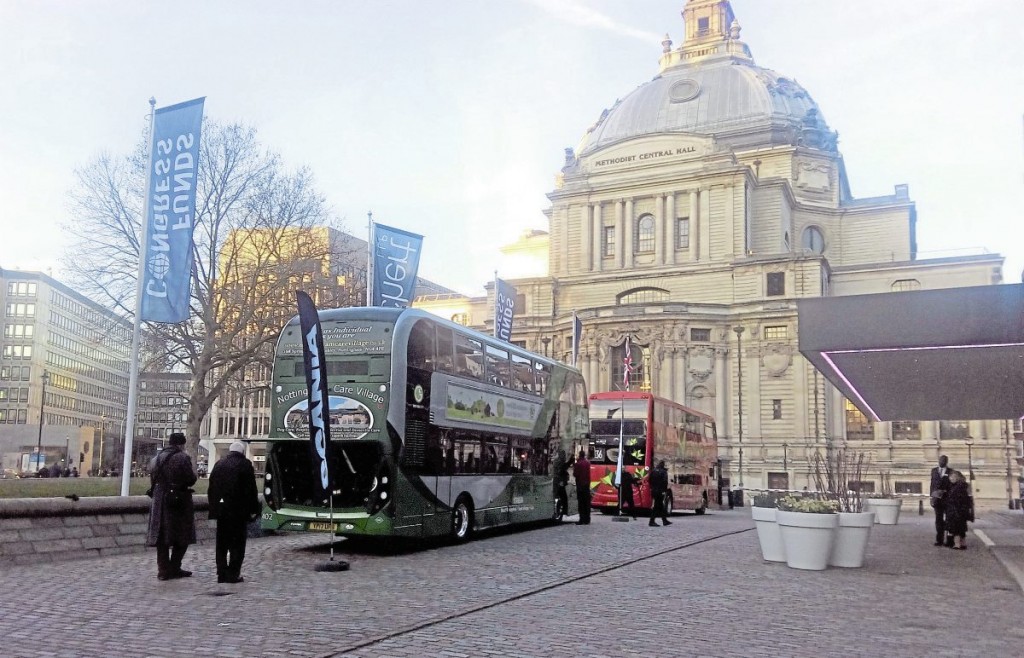
Outside, delegates could take a hands-on look at examples of a gas bus, electric bus and Peter Hendy’s Euro VI Routemaster
Ghani: ‘Huge fan of buses’
New Transport Minister for buses, Nusrat Ghani MP, made her maiden public appearance in her new role at the UK Bus Summit, reassuring delegates that buses are central to her thinking.
“I’m a huge fan of buses,” she said. “They are the most effective and affordable way to reduce emissions. Coaches are great for cities, too. The bus industry is indispensable – nobody else offers what you offer.
“I want to champion buses and coaches to bind our towns and cities together. The younger generation doesn’t wish to own a car, but the buses they use are hampered by congestion. I want a shift away from car use but I know it’s a big challenge.
“We have to hammer home that buses and coaches are part of the solution.”
Nus Ghani highlighted the government’s £220m Clean Air Fund as an example of its commitment but praised the bus building sector: “You are the pioneers in Low Carbon Buses and can be proud of your achievements,” she said.
The Minister chose the conference to announce the next tranche of Clean Air funding – £40m split between 20 local authority projects. Most of the funding will go to retrofit technologies, she said. She also said the government’s Clean Air Strategy will be unveiled later this year.
But she also hailed the advent of “new powers of franchising” which, she said, would improve the management of buses: “Buses will become more important than ever. The key is government and the bus industry working together.”
Policies should be based on evidence
In the first session, The Role of the Bus in Reducing Emissions, Greener Journeys CEO Claire Haigh fired a salvo at the architects of the Clean Air Zones urging them to set targets based on evidence, not expediency.
Her message to the government had been sent earlier in the week, in open letters to Transport Secretary Chris Grayling and to Michael Gove, Department for Environment, Food and Rural Affairs, which flagged the fact that cars are not part of the CAZ strategy, and saying that the current guidance is doomed to fail to meet objectives.
“We are facing a public health crisis. Air pollution today could be every bit as lethal as the smogs which hit London, but less visible. A heavy burden falls on transport.
“Congestion is a drag on the economy and it kills; it increases emissions four-fold,” she said, just as the Minister left the auditorium. “Tackling congestion is the cornerstone and should be targeting the biggest polluters – that is the role of central government.
“The Clean Air Zones need to embrace bus travel, but the current government guidance falls short, and use of the private car is impacted as a last resort. It’s in the reverse order of the source of emissions, and cannot succeed without including diesel cars and vans.
“The government has shied away from decisions which will anger motorists, and are passing the responsibility to local authorities. It will not be sufficient to tackle the problem.”
Claire said that, in terms of returned value, spending on buses is six times more efficient at tackling pollution than diesel scrappage schemes, according to KPMG: “My concern is that the CAZs will fail and lead to worsening congestion, with serious consequences for the most vulnerable people in society.
“Buses must be at the heart of CAZs. In 1956, the government passed the first Clean Air Act. That time has come again.”
Brown: ‘The future isn’t Uber’
Chief Executive of Go-Ahead, David Brown, warned that creating electric bus fleets won’t get people aboard.
David told delegates the core of all problems with urban transport is road space: “We’re not very good at sharing space when we’re on wheels,” he said, but said the notion that people will flock to electric buses is flawed.
“We have the only all-electric depot at Waterloo. It’s been a good start but to see more electric vehicles, the technology needs to be on firmer ground. It needs large-scale investment in city infrastructure and we need new forms of electric storage to avoid peaks on the grid.
“A 100-vehicle depot would be a very big challenge; it won’t come without faster charging and longer battery life,” he said, adding that while electric vehicles end tailpipe emissions, particulates from brakes and tyres are not accounted for.
“The key to solving congestion is aggregation, whether people on public transport or parcels in vans; this will provide the best benefit. We need to focus on the most affordable vehicle in dedicated roadspace. We need a better focus on freight and to build public health into the our roads policy.”
Baumot: ‘Retrofit can work’
Winfried Dolling said a new system from his company, Twintec Baumot, may provide a cost-effective answer to upgrading used buses.
The BNOx Selective Catalytic Reduction device has already passed testing at Millbrook and other technical centres, and not only works on vehicles from Euro III forwards, but will drive down NOx emissions by 95% or more even at urban operating temperatures.
“An ammonia generating system converts AdBlue on-board to ammonia, which is injected direct into the exhaust system,” he said, explaining that as a result of this operating principle, no function-critical hydrolysis in the exhaust gas stream is required (unlike with conventional SCR systems).
On a Euro 5 test vehicle – a VW Passat car – one demonstration saw NOx reduced from more than 1000 mg/km to 69 mg/km. On a bus, Winfried said, per-passenger NOX emissions are practically zero.
“BNOx can be fitted easily at around £20,000 and, with grant funding, can be effective.” Baumot is awaiting accreditation from CVRAS.
Euro VI is not Euro 6
Optare’s Commercial Director, Robert Drewery, and Wrightbus MD, Mark Nodder, chose a panel discussion session to underline the differences between car and heavy-vehicle emissions testing.
“We test our buses at Millbrook with PEMS emissions metering,” said Robert. “We test the bus itself, in the real world.” Echoing him, Mark said there must be no confusion between ‘laboratory’ car testing which led to the Volkswagen scandal and the emissions testing of buses.
“The heavy-duty test cycle is very different,” he said. “Buses are the cleanest form of transport on the road.”
Robert Drewery said Optare had put huge effort into electric vehicles and into export but uptake and further investment depended on operators getting financial support: “I have a degree of fear that if the electric car becomes dominant, it will deflect the congestion argument.
“If cars steal a march on us, it will really cost the bus industry; we have to make sure the bus dominates the argument.”
Go-Ahead’s David Brown said the industry needs to focus attention on young adults or risks losing them as passengers: “They will use Uber. To get young people aboard, we need to make it simpler to use the bus. Maybe journey information needs to be aggregated.
“The people now in power only remember buses in the 1970s; we need to capture this generation.”
Chair, David Begg, said it took a long time before bus operators cottoned on to USB charging and wifi: “Is that because we are too old?” he quipped.
TfL: ‘Mustn’t miss out on diesel’
Transport for London’s MD of Surface Transport, Gareth Powell, lauded the Mayor of London’s strategy, including the new T Charge.
“Where does the bus fit in?” he said. “We have to get more bus users on to the public transport system. There must be an incentive to move to the most efficient type of vehicle.”
But Gareth cautioned against a wholesale drive into electric bus: “If we go to EV too soon, we miss out on a good decade of progress with diesel buses. Euro VI buses are exceptionally clean.
“In London, we are in the middle of a massive retrofit, with 4,200 buses to do. We are doing this within a framework involving five suppliers. But I believe it is possible to make electric buses competitive with diesel.”
Gary Bartlett, Leeds City Council, Highways: “We have to move away from the motorway city of the ‘70s. Residents want better access to public transport and less impact on the environment. In our survey, we got 8,000 responses – the best ever – and they overwhelmingly want cars out of the city centre, more Park & Ride and priority for public transport. To get anywhere, we need to double bus patronage; to get that, there have to be some very tough decisions made.”
Cllr Roger Lawrence, West Mindlands Combined Authority: “We have 215,000 new houses to come, Coventry becomes City of Culture and we host the Commonwealth Games. There are competing demands for roadspace and air quality is a significant challenge. We now realise there is a price to pay for having a motorway through Birmingham, with the poorest communities hit hardest.”
Fearnley: ‘Buses have image problem’
FirstGroup MD of UK Bus, Giles Fearnley, reminded the audience that the key issue is filling buses with customers: “But our starting point is not great,” he said.
“The industry has an image problem. The perception is 50 years of decline, but actually, we are the future, and the rest of transport is in for a shock. I’ve been around in this sector for a long time, and I’ve never been more confident.”
Giles gave examples of services growing year-on-year, new technology reaching customers, such as cashless payment, and said that in Aberdeen where contactless payment was rolled our recently, already 50% of customers are using contactless or mobile payment.
“But air quality is a very real opportunity for us. Buses are the only way to reduce car emissions.” Giles said the move towards public-private partnership in urban transport may now ensure transport planning is about what passengers want.
“We need some mutual honesty as bus operators, and no more going through the motions of partnership with local authorities. For local authorities, we want no more treating the bus as second-class transport.
“FirstGroup will invest significantly where real partners do their bit.”
Drewery: ‘We won’t need fuel cells’
Optare Commercial Director, Robert Drewery, said the drive to grow the electric bus fleet is not a technical challenge but a policy challenge.
“Electric buses are still only 0.5% of the bus fleet. We have a long way to go to achieve the 10% of the fleet by 2020,” he said. “But of those electric buses, some are delivering more reliability than their diesel equivalents.”
Robert said he believes discussions about electric bus range will soon be forgotten: “We won’t need fuel cells going forward. Battery technology will do it for us; range will be a non-issue in 18 months. Cost will be more of an issue.”
He said that the energy density of batteries had increased 300% in five years; “Next we can look forward to hub motors replacing the motor/gearbox set-up, achieving another 10% in range. The next generation of heating for buses will deliver another 5% range, and weight reduction a further 4%.”
Though far from ideal, battery costs are being driven down, he said: “Battery cost per kilowatt hour has halved in seven years. But to get better economy, we must engage on the second life of batteries; they need to have a residual value.”
But the Optare Director warned that uptake of electric buses is dependent on incentive support, and that so far, this support has been limited to London operators.
Jillian Anable, Professor of Transport and Energy, Leeds University: “If you read all the popular media, you’d believe the move to public transport is a revolution. I looked up the definition of ‘revolution’; it also means ‘going round in circles.’ To move forward, we need changes of values and attitudes – the acceptance of not driving. The public’s idea of ‘Shared Mobility’ seems not to include public transport. People don’t like to share their space.”
‘Gen1’ batteries: ‘Frightening costs’
A question from Reading Buses MD Martijn Gilbert sparked a conversation about batteries, with another operator confirming that batteries from the first electric buses are a problem.
“We are starting to feel real pain from the first generation of batteries,” said Martijn. “This problem is just starting. Can we really sign up to start-ups without technology created in a holistically sustainable way?”
Giles Fearnley of FirstGroup confirmed his company was facing similar issues: “We’re dealing with frightening costs on early electric buses,” he said.
Glasgow: Needs a bus renaissance
From being a city famous for buses, Glasgow has seen a 40% fall in bus patronage and is in need of tough measures to turn it around.
Susan Aitken, leader of Glasgow City Council, catches the 38 every morning, she said: “I have a vested interest in having the best bus services possible.” She said Glasgow and surrounding towns total some 1.5 million people, and one of the best suburban rail networks in the UK.
But while the city, which has some of the lowest car ownership in the UK, has made strides in modal shift to cycling and walking, bus travel has taken a tumble: “The bus network is not up to scratch,” said Susan, whose SNP party broke a 40-year Labour stranglehold.
“We want a complete turn-around. People are now struggling to get to work and to the city centre. As the new city governance, we want accessible transport as a priority. Change does bring an appetite for new relationships, and a need to challenge calcified assumptions.”
Susan said Glaswegians see their city a major European hub, and want to see global standards: “Good connectivity enables the economy to flourish; to drive sustainable, inclusive growth. There is very clear evidence that the lack of connectivity is limiting employment and feeding inequality.”
She said that the bus sector is central to connectivity, though she explained that the clean-air zone starting at the end of 2019 will target buses first: “But we are not simply targeting buses,” she reassured the audience. “We want to form a relationship with the industry with bus partnership.”
She said the physical nature of the streets was one barrier: “But we want a new era for buses in Glasgow. We want to listen to, watch and borrow from the bus industry’s expertise.”
This theme was echoed by Lilli Matson, Director of Transport Strategy for Transport for London, who said the Mayor’s Transport Strategy targets an 80% modal share for mass transit, which demands better use of roadspace.
“We have to make the streets work better,” she said. “We do this by making sure there is space for buses. Buses must have a second revolution; heavy rail is too expensive.”
Paul Buchanan, Partner, Volterra: “I’d caution against asking people what they want. Henry Ford said that, if he’d asked people what they want, they’d have said ‘Faster horses.’ Actually, the transport market is astonishingly stable. For decades, the number of trips and the time spent travelling have remained the same; people use the same amount of time, but go further.”
Peter Ferguson, CEO, Prospective: “There is currently an explosion of data in which, for the first time, we can see all sorts of things. On buses, you have so much material to work with. Uber’s app uses data from its customers to place taxis where people are expected to book. Instead of the slow processes we have, you can test hundreds of travel models really quickly.”
Arriva: Embracing DRT
In the final session, looking at the impact of ‘disruptive technology,’ Arriva’s MD of UK Bus, Kevin O’Connor, said that far from avoiding the trend for connective travel, the industry must embrace it.
“There are now changing expectations of us, post Uber and others. While autonomous cars may be here, they are for the future. A far bigger disruptor for us is on-line shopping, with people travelling less.
“Now, people are expecting as a minimum to tailor their journeys on the phone and use them. Apps are now respected, so we have to be dynamic and flexible, and ready for change.”
Kevin highlighted ArrivaClick, the app-based journey aggregator which launched last year in Sittingbourne with a fleet of accessible Sprinter minibuses and has enjoyed a 15% week-on-week growth, with 52% of customers swapping a car journey for Click: “Will DRT change the world? No, but it will hook into people who are not currently using the bus.”
